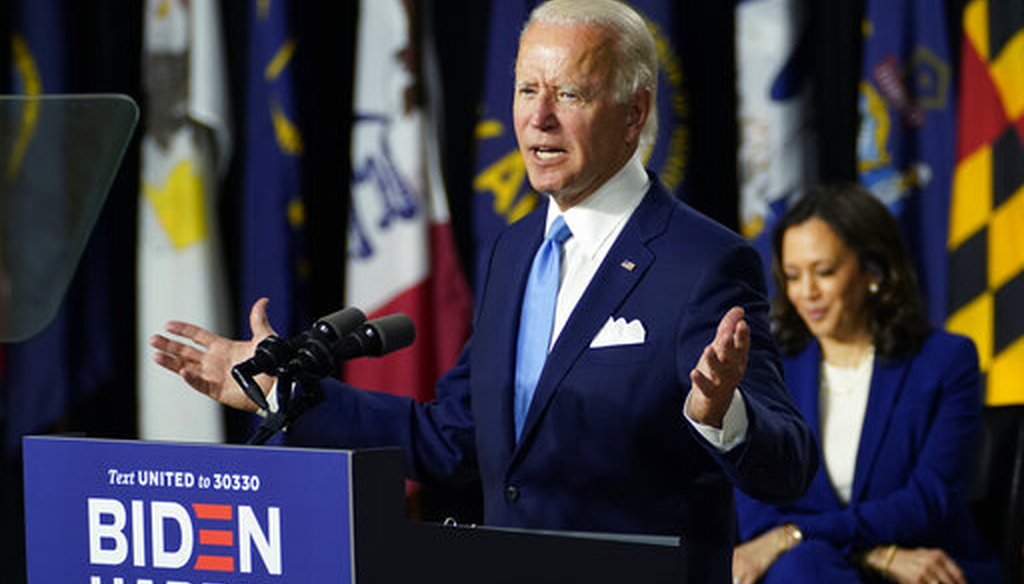We all know exactly what will happen if President Biden goes through with plans to ban imports of Russian oil amid mounting horrors in Ukraine, as he has been reluctant to do. The same Republicans loudly demanding this step will turn around and attack Biden over any resulting economic fallout.
Opinions to start the day, in your inbox. Sign up.
Republicans are already telegraphing this intention, and this is to be expected from today’s GOP. But the very fact that Biden and Democrats are vulnerable to such a bad-faith ploy in the first place points to dark and unsettling truths about our politics in various unexpected ways.
With the brutality of the Russian invasion of Ukraine getting worse by the minute, Secretary of State Antony Blinken disclosed Sunday that the United States is in talks with European allies about a “coordinated” ban on such imports.
ADVERTISING
The goal, said Blinken, is to pursue this while ensuring “an appropriate supply of oil in world markets.” One big worry is this could fuel rising gas prices; in fact, the White House has been reluctant to ban Russian oil for exactly this reason.
But now the pressure from lawmakers is intensifying. House Speaker Nancy Pelosi (D-Calif.) says the House might vote on legislation banning Russian oil imports this week. Many others in both parties are calling for the same.
This has put Biden in a jam. As the Wall Street Journal reports, Republicans are both calling for this ban while also attacking Biden over inflation and already-high gas prices. The Journal suggests that if this ban goes ahead and drives gas prices even higher, Republicans will attack Biden over this, boosting their chances of taking control of Congress.
As absurd as this is, it poses a serious problem. And this points to deeply unsettling dynamics in our politics.
First, it seems predictable that media outlets might largely let this bad faith slide. For instance, a New York Times piece reports on the schizophrenia underlying the GOP approach, and notes in passing that it rests on a substantively flimsy case, but then turns around and suggests it’s “unifying" Republicans and could be “potent” in the midterms.
Get ready for more like this: The mere fact that Republicans are using something as political ammunition justifies treating their claim about it like a newsworthy and thus respectable argument, regardless of how painfully ridiculous it is.
Second, this situation points to a confounding problem, one that is illuminated in this conversation between journalists Ezra Klein and Fareed Zakaria. As Klein noted, a deep “asymmetry” here is that Biden must worry about the domestic politics of higher energy prices, potentially constraining him, even as Russian President Vladimir Putin worries far less about the political fallout of consequences being imposed by the United States and our allies, such as crushing economic sanctions.
This asymmetry exists precisely because we are a liberal democracy and Putin is a repressive autocrat. In response to this, Zakaria noted that democracies often are capable of absorbing larger sacrifices than they are given credit for, particularly when the stakes are very high.
And here the stakes are indeed extremely high. As Zakaria argued, the success of the “international system” going forward depends on demonstrating to Putin that the horrifically violent annexation of a sovereign nation has “very, very high costs.”
It might be argued that Biden will have to communicate those stakes to the American people to get them to accept the sacrifice of higher gas prices to achieve that higher aim:
To be sure, it’s unclear how much of an impact a Russian oil ban would have on domestic gas prices. As the Atlantic Council’s Edward Fishman helpfully explains, merely banning imports to the United States might not produce such onerous costs. But the broader goal should be to try to disrupt Russia’s oil sales globally, which could produce more economic turmoil, though there are various ways to mitigate it.
Which brings us to yet another conundrum revealed by this debate.
In his excellent book about our imperiled international order, foreign policy analyst Robert Kagan chronicles the reluctance of the American people to enter World War II. This was due to another asymmetry: On one hand, the economic and human costs of entry were intelligible and easy to grasp. On the other, the potential international costs of refraining were vague and unpredictable.
The parallels to this moment are far from perfect, but they’re instructive. Higher gas prices and other economic fallout are very legible, whereas the long-term downsides of not extracting a huge cost for Putin’s assault on the international order are far less so.
“You’re constantly forced to make the case that you need to pay costs now to prevent further dangers and crises in the future,” Kagan, who’s also a Post contributing columnist, told me. “But the dangers and crises are theoretical, whereas the costs that Americans are being asked to pay are concrete.”
This problem, Kagan continued, “is common to democracies at all times.” And it’s a problem with no easy answers — but with immense potential consequences.
Opinions to start the day, in your inbox. Sign up.
Republicans are already telegraphing this intention, and this is to be expected from today’s GOP. But the very fact that Biden and Democrats are vulnerable to such a bad-faith ploy in the first place points to dark and unsettling truths about our politics in various unexpected ways.
With the brutality of the Russian invasion of Ukraine getting worse by the minute, Secretary of State Antony Blinken disclosed Sunday that the United States is in talks with European allies about a “coordinated” ban on such imports.
ADVERTISING
The goal, said Blinken, is to pursue this while ensuring “an appropriate supply of oil in world markets.” One big worry is this could fuel rising gas prices; in fact, the White House has been reluctant to ban Russian oil for exactly this reason.
But now the pressure from lawmakers is intensifying. House Speaker Nancy Pelosi (D-Calif.) says the House might vote on legislation banning Russian oil imports this week. Many others in both parties are calling for the same.
This has put Biden in a jam. As the Wall Street Journal reports, Republicans are both calling for this ban while also attacking Biden over inflation and already-high gas prices. The Journal suggests that if this ban goes ahead and drives gas prices even higher, Republicans will attack Biden over this, boosting their chances of taking control of Congress.
As absurd as this is, it poses a serious problem. And this points to deeply unsettling dynamics in our politics.
First, it seems predictable that media outlets might largely let this bad faith slide. For instance, a New York Times piece reports on the schizophrenia underlying the GOP approach, and notes in passing that it rests on a substantively flimsy case, but then turns around and suggests it’s “unifying" Republicans and could be “potent” in the midterms.
Get ready for more like this: The mere fact that Republicans are using something as political ammunition justifies treating their claim about it like a newsworthy and thus respectable argument, regardless of how painfully ridiculous it is.
Second, this situation points to a confounding problem, one that is illuminated in this conversation between journalists Ezra Klein and Fareed Zakaria. As Klein noted, a deep “asymmetry” here is that Biden must worry about the domestic politics of higher energy prices, potentially constraining him, even as Russian President Vladimir Putin worries far less about the political fallout of consequences being imposed by the United States and our allies, such as crushing economic sanctions.
This asymmetry exists precisely because we are a liberal democracy and Putin is a repressive autocrat. In response to this, Zakaria noted that democracies often are capable of absorbing larger sacrifices than they are given credit for, particularly when the stakes are very high.
And here the stakes are indeed extremely high. As Zakaria argued, the success of the “international system” going forward depends on demonstrating to Putin that the horrifically violent annexation of a sovereign nation has “very, very high costs.”
It might be argued that Biden will have to communicate those stakes to the American people to get them to accept the sacrifice of higher gas prices to achieve that higher aim:
To be sure, it’s unclear how much of an impact a Russian oil ban would have on domestic gas prices. As the Atlantic Council’s Edward Fishman helpfully explains, merely banning imports to the United States might not produce such onerous costs. But the broader goal should be to try to disrupt Russia’s oil sales globally, which could produce more economic turmoil, though there are various ways to mitigate it.
Which brings us to yet another conundrum revealed by this debate.
In his excellent book about our imperiled international order, foreign policy analyst Robert Kagan chronicles the reluctance of the American people to enter World War II. This was due to another asymmetry: On one hand, the economic and human costs of entry were intelligible and easy to grasp. On the other, the potential international costs of refraining were vague and unpredictable.
The parallels to this moment are far from perfect, but they’re instructive. Higher gas prices and other economic fallout are very legible, whereas the long-term downsides of not extracting a huge cost for Putin’s assault on the international order are far less so.
“You’re constantly forced to make the case that you need to pay costs now to prevent further dangers and crises in the future,” Kagan, who’s also a Post contributing columnist, told me. “But the dangers and crises are theoretical, whereas the costs that Americans are being asked to pay are concrete.”
This problem, Kagan continued, “is common to democracies at all times.” And it’s a problem with no easy answers — but with immense potential consequences.




